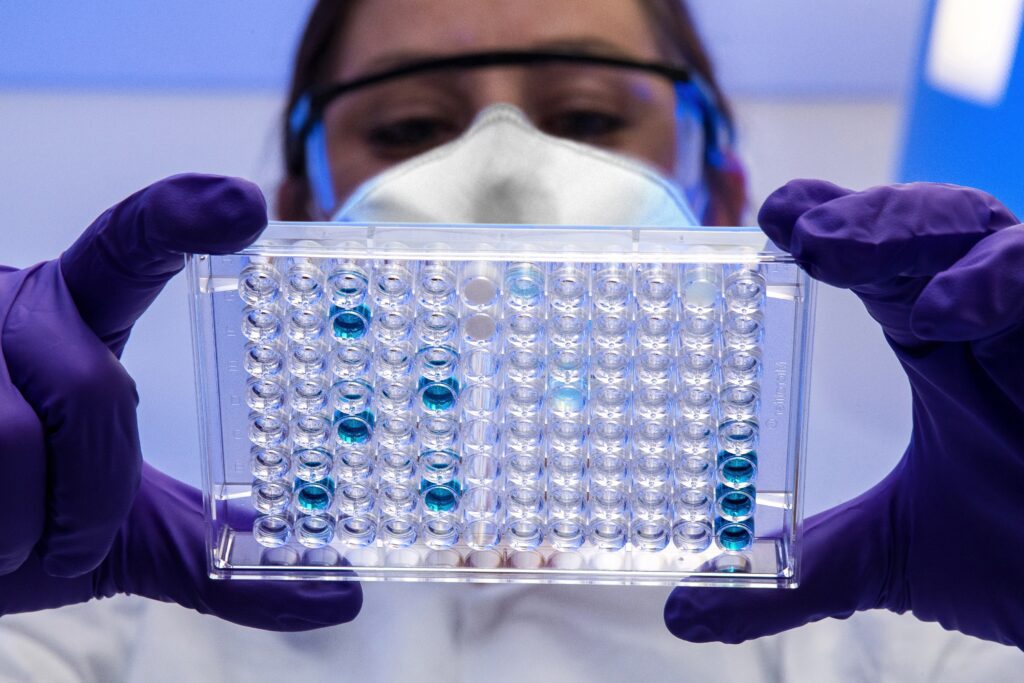Should I Have PGS Testing on My Embryos?

One of the advantages of doing In-Vitro Fertilization (IVF) is that it gives the opportunity to the doctor and intended parents to do specialized genetic testing to confirm the genetic health of the embryos. By choosing genetically healthy embryos, the success rate of IVF pregnancy is improved and the chances of abortion might be reduced. Preimplantation genetic screening (PGS) is an advanced laboratory test that is used to evaluate the genetic makeup of embryos produced through in vitro fertilization (IVF). The test is typically used to identify chromosomal abnormalities in the embryos, which can affect their potential to develop into healthy pregnancies. Should you do PGS testing on your embryos, let’s explore this in this blog.
What is PGS Testing?
PGS testing is accomplished on a small sample of cells taken from the embryo, usually on the fifth or sixth day of development (blastocyst). The sample is then examined for chromosomal abnormalities, such as aneuploidy (an abnormal number of chromosomes), which can cause developmental issues and increase the risk of miscarriage.
PGS testing can be performed on either fresh or frozen embryos. If you are using fresh embryos, the test will be performed shortly after the embryos are created. If you are using frozen embryos, the test will be performed after the embryos are thawed and before they are transferred back into the uterus.
So, how much time it takes to get the result of the PGS? Usually, the results of PGS testing come out within 2 weeks, and the outcome can help you and your fertility specialist to identify embryos that are more likely to develop into healthy pregnancies. Furthermore, it is important to note that PGS testing cannot guarantee a successful outcome, and there is a small risk of damaging the embryos during the testing process. Besides this, the PGS report can give an indication of the gender of the embryos so can be used for family balancing or avoiding gender-specific diseases.
Overall, PGS testing can be a useful tool for identifying chromosomal abnormalities in embryos, but it is not right for everyone. It is important to discuss your options with your fertility specialist and to carefully consider the potential risks and benefits of PGS testing before making a decision.
 What is the difference between PGS and PDG?
What is the difference between PGS and PDG?
Pre-genetic screening (PGS) analyses biopsied cells from the embryo to screen for potential genetic abnormalities when there are no known potentially inherited disorders. On the other hand, pre-genetic diagnosis (PGD), uses the same process to detect a specific disorder that has a high probability of being passed down from parents to their offspring.
A new technique called Next-generation sequencing (NGS) which is DNA sequencing using the concept of massively parallel processing is gaining lots of traction and many advanced fertility clinics are opting for the NGS technique for genetic testing. NGS is the latest evolutionary genetic analysis technology that allows the lab to perform extensive chromosome scanning on the embryo. With NGS, embryos are screened quickly and efficiently, and genetic problems at the chromosome level are detected before pregnancy.
Factors to consider before planning for PGS?
Whether or not to have PGS testing on your embryos is a personal decision that should be made after considering your individual circumstances and goals.
Here are a few things to consider before doing PGS:
#1. Your age:
The older you are, the more likely it is that your eggs or sperm will have chromosomal abnormalities. If you are over the age of 35 and are considering IVF, you may want to consider PGS testing to increase the chances of having a healthy pregnancy. It goes without saying that with aging the mutation goes up and so does the chance of having genetically abnormal embryos.
#2. Your medical history:
If you have a history of recurrent miscarriages or infertility, or if you or your partner have a family history of genetic disorders, you may want to consider PGS testing to increase the chances of having a healthy pregnancy. In the case of genetic history from either side of the would-be parents, it is recommended to opt for genetic testing to exclude the possibility of passing faulty genes to the next generation.
#3. Your personal values:
PGS testing can help you to identify embryos that are more likely to develop into healthy pregnancies, but it cannot guarantee a successful outcome. If you are comfortable with the risks and uncertainties involved in pregnancy and childbirth, you may decide not to have PGS testing.
Ultimately, the decision of whether or not to have PGS testing on your embryos is a personal one that should be based on your individual circumstances and goals. Besides this, pay attention to the advice of your fertility specialist as your doctor he/she knows your specific case, past medical histories, and failed IVF cycles. After that, carefully consider the potential risks and benefits of PGS testing before making a decision.
Read more:
Can I use both an egg donor and sperm donor for my surrogacy journey
Is a surrogate genetically related to the baby?
What is the average cost of surrogacy
Who Should Get PGS Tested?
Preimplantation genetic diagnosis (PGD) is a laboratory test that is used to evaluate the genetic makeup of embryos produced through in vitro fertilization (IVF). The test is typically used to identify specific genetic disorders or other inherited conditions that may be present in the embryos.
PGD is usually recommended for people who are at risk of passing on a genetic disorder or other inherited condition to their children. This may include people who:
- Have a family history of a specific genetic disorder or other inherited condition
- Have a personal history of a specific genetic disorder or other inherited condition
- Are carriers of a genetic mutation that could be passed on to their children
- Have had children with a genetic disorder or other inherited condition
- The couple had failed IVF cycles in the past. This is also known as unexplained infertility.
- A female had multiple miscarriages and there is no clear explanation for the same.
Overall, PGD is a specialized test that is used to identify specific genetic disorders or other inherited conditions in embryos. It is usually recommended for people who are at risk of passing on these conditions to their children, but it may not be right for everyone.
PGD is usually not recommended for people who do not have a specific risk of passing on a genetic disorder or other inherited condition. If you are considering PGD, it is important to discuss your options with your fertility specialist and to carefully consider the potential risks and benefits of the test before making a decision.
If you’d like to learn more about IVF, Egg Donation, or surrogacy services globally, check out the rest of our website at IVF Conceptions. We offer legally secure and affordable surrogacy consulting services for FREE.

 What is the difference between PGS and PDG?
What is the difference between PGS and PDG?
